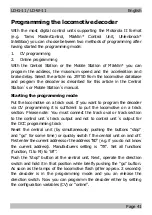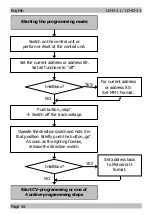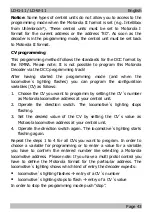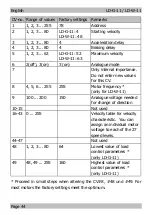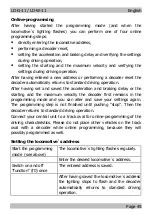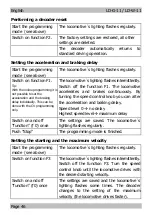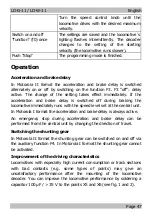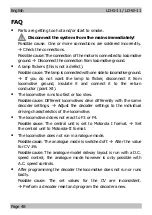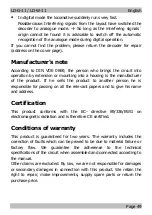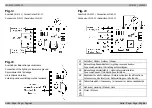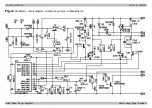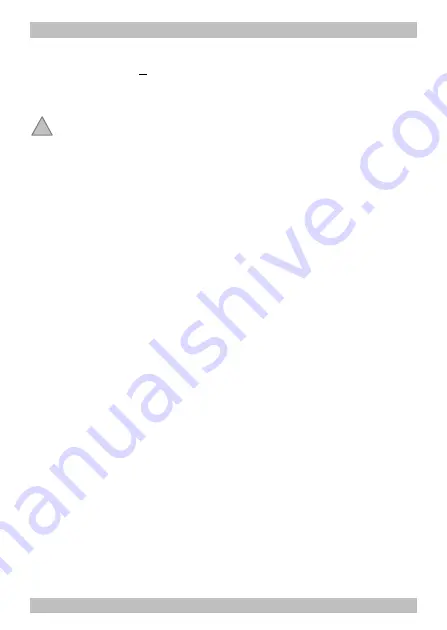
LD-G-11 / LD-W-11
English
Page 37
!
§
tin solder (0,5 mm. diameter)
§
wire (diameter: > 0,05 mm² for all connections)
Safe and correct soldering
Caution:
Incorrect soldering can cause dangers through fires and heat. Avoid
these dangers by reading and following the directions given in the
chapter
Safety instructions
.
§
Use a small soldering iron with max. 30 Watt. Keep the soldering tip
clean so the heat of the soldering iron is applied to the solder point
effectively.
§
When soldering electronic circuits never use soldering-water or
soldering grease. They contain acids that can corrode components
and copper tracks.
§
Only use electronic tin solder with flux.
§
Solder quickly: holding the iron on the joints longer than necessary can
destroy components and can damage copper tracks or soldering eyes.
§
Apply the soldering tip to the soldering spot in such a way that the wire
and the soldering eye are heated at the same time. Simultaneously add
solder (not too much). As soon as the solder becomes liquid take it
away. Hold the soldering tip at the spot for a few seconds so that the
solder flows into the joint, then remove the soldering iron.
§
The joint should be held still for about 5 seconds after soldering.
§
To make a good soldering joint you should use a clean and
unoxidised soldering tip. Clean the soldering tip with a damp piece
of cloth, a damp sponge or a piece of silicon cloth.
§
After soldering check (preferably with a magnifying glass) tracks for
accidental solder bridges and short circuits. This would cause faulty
operation or, in the worst case, permanent damage. You can
remove excess solder by putting a clean soldering tip on the spot.
The solder will become liquid again and flow from the soldering
spot to the soldering tip.

















